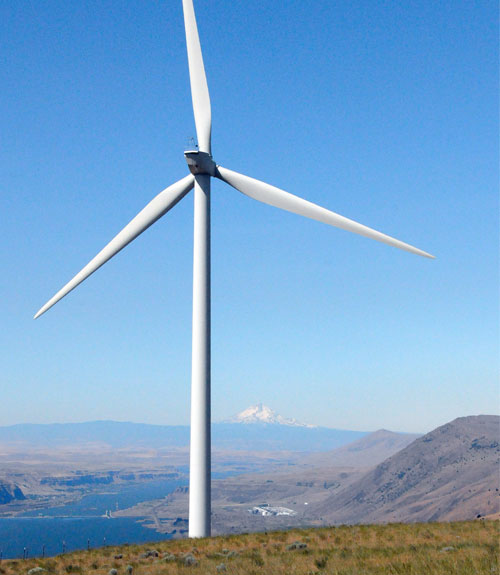 The incoming Republican majority in the House of Representatives will almost certainly present obstacles toward the wind industry's agenda on Capitol Hill, including extension of the 2009 stimulus cash grants and a federal renewable electricity standard (RES). The question, as the wind industry waits for the new Congress to meet, is how to deal with those obstacles.
The incoming Republican majority in the House of Representatives will almost certainly present obstacles toward the wind industry's agenda on Capitol Hill, including extension of the 2009 stimulus cash grants and a federal renewable electricity standard (RES). The question, as the wind industry waits for the new Congress to meet, is how to deal with those obstacles.
‘It's going to be different, no doubt about that,’ says Jeffrey Chester, a partner in Kaye Scholer LLP's Los Angeles office and head of the firm's wind power practice. ‘It's going to be more difficult to get things done, but it's not going to be impossible. The new Republican majority wants to cut government spending and wants to leave things to the private sector. And that runs counter to what wind is asking for.’
There is little doubt that the Republicans, led by Rep. John Boehner, R-Ohio, and the three leading candidates – Rep. Joe Barton, R-Tex., Rep. Fred Upton, R-Mich., and Rep. John Shimkus, R-Ill. to chair the House energy committee, are not perceived as friendly toward wind energy. Representatives from Boehner's office did not respond to e-mails requesting an interview.
According to the American Wind Energy Association (AWEA), all four politicians opposed the American Recovery and Reinvestment Act of 2009, and the incoming speaker called the legislation ‘the trillion-dollar spending bill that stressed-out taxpayers feared it would be.’
Meanwhile, Rep. Doc Hastings, R-Wash., the incoming chairman of the House Natural Resources Committee, said recently he would support expanding oil and natural-gas development off the East and West coasts, something that Congress has not approved for more than 30 years.
‘What's especially unfortunate is that so much of the recent renewable energy legislation was passed during the past several years, when there was a Republican majority in the Congress,’ says Andy Kruse, the founder and senior vice president of business development for Southwest Wind, a small-wind developer. ‘It took a joint effort to get it through then, which no one seems to remember.’
Roby Roberts, vice president for communications and government affairs at Houston-based Horizon Wind Energy and an AWEA board member, says the wind industry's approach to the new House majority should emphasize compromise and educate the recently elected that wind enjoys bipartisan support.
‘We have to remind them that wind is not a political issue,’ Roberts says. ‘It crosses political barriers. It should not be framed as a political issue.’
That is why most agree that the production tax credit will be renewed before it expires at the end of 2012. The tax credit still enjoys important support in the Senate, despite a reduced Democratic majority, and it has attracted significant GOP support in the House in the past from Rustbelt members who see it as a jobs issue.
More problematic are the cash grants that could be a victim of 2010 Republican campaign rhetoric. ‘Which is too bad,’ says attorney Ted Benn, a partner with Thompson & Knight in Dallas who has represented several wind industry clients. ‘It was recognized as a job creation issue, and that's what it did,’ he says.
Roberts says the industry may have to consider including clean coal and nuclear energy in a federal RES in order to get the necessary votes in the House. ‘In a sensible energy policy,’ he says, ‘you have to ask what the role for each should be. We shouldn't be afraid to discuss these issues.’
Yet, says Benn, not all is doom and gloom. Wind has come a long way in the past 15 years, and the next two years will not make or break the industry, even if they are more difficult. ‘The industry finally feels relevant to a lot of people,’ he says. ‘It's not going to go away just because of this election.’
That long-term view is essential, says Fred Anderson, an attorney at McKenna Long & Aldridge. His take? That climate change will continue to be an important global issue regardless of what happens on Capitol Hill over the next couple of years; that the Europeans and the Chinese will continue to invest in wind construction and technology no matter what the U.S. does; and that the several U.S. states that already do will continue to support wind.
‘Wind and other carbon-avoiding technologies have a good future for terrific reasons,’ he says. ‘What Congress does is just one piece of a larger mosaic in the nation and in the world. The Republican majority doesn't control what happens elsewhere. And there has been a lot of sound and fury, but that's not necessarily significant action.’
The key may well be finding a way to use those advantages to help the new majority understand the role wind plays in the country's post-modern economic and energy environment.
Jeff Siegel is a freelance writer living in Dallas.
Photo courtesy of Dennis Schwartz.



